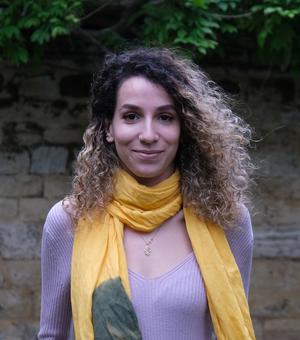Siga
Moroccan Post Narrative Movie
Siga is a film written and directed by Rabii El Jawhari, produced by
Mustapha Bouhalba. It was premiered in Dakhla, Rabat, Ouarzazate, Ouazzane and
Tanger and it is now about to be released in Morocco on November 2, 2022. It is
worth seeing owing to its wonderful action scenes, different Moroccan music
from Amazigh, Hassani, Rifi and Arabic styles, love stories and many more. El
Jawhari wrote this movie after he had attended the festival of Geneva in 2013
where he screened one of his documentaries. He found himself there confronted with
many false claims constructed by a propagandized documentary film. He publicly
discussed the film with his filmmaker who could neither prove his claims nor refute
El Jawhari’s historical evidence. World journalists wrote about that event
seeing that they for the first time hear about the strong interaction between
all Moroccan areas, namely the far north with the south.
This is how El Jawhari has decided to write this movie to explain the
Moroccan cause. Unfortunately, the screenplay was rejected so many times from
the committee of funding though it defends the Moroccan cause and refutes the
colonial and propagandized claims against the Moroccan Sahara. Bouhalba decided
to produce this movie at his own expense and he started shooting directly after
the strict lockdown caused by Covid 19, which was very hard since the movements
within the country in particular and the world in general was still hard. Siga’s
post production was completed and premiered in several Moroccan cities where
the audiences liked the film. The press, moreover, accompanied this success,
but unfortunately the committee of the cinematic fund rejected it again without
any logical reason.
Siga tells the story of Abdelghafour (Houcine Bouhcin), a Moroccan
journalist who writes about the historical and familial links between the north
and the south of Morocco. Al Batal (Tawfiq Charaf Eddine), a chief of a militia
group in Tindouf, kidnapped Abdelghafour and separated him from Fatimato
(Fadila El Hamel), a girl whom Abdelghafour loves so much. Abdelghafour spends
more that 20 years in horrible prisons that are unprecedented in world history.
One day, Abdelghafour addresses his torturer, “if you lived in Morocco, you
would be much better than me”. This marks a disruption in Al Batal’s
psychological state because it stimulates his unconscious cultural heritage.
El Jawhari creates a loophole
rather than a logical transition to allow his audience access directly to the
mind of Al Batal. He does not opt for the flashback technique to link between
the different eras in Siga, but rather gives the chance to the audience to feel
just like Al Batal does when he experiences sudden emotional, unexpected and
abrupt transitions from the present time to the 13th or 19th
centuries when his ancestors lived. El Jawhari wants to give two levels of his
narrative. The first one is fragmented. It signifies the theme of separation
that stands for the polisario, while the second level conveys the strong
energetic continuity amongst these stories in the mind of Al Batal who turns
out to be someone who reflects the Moroccan cultural heritage before it is
manipulated by colonization. The narrative apparently is fragmented but, in its
core and depth, it is linear. This is to indicate that Al Batal, who suffers
bipolar symptoms, will transcend the psychological disruption caused by
colonization and opt for being coherent with his convictions, leading him to
escape from Tindouf along with Abdelghafour. It is this situation according to
which El Jawhari constructs his filmic narrative. Siga, therefore, is
considered to be a “post narrative” film because El Jawhari interweaves
fragmentation with linearity. For him, his narrative imitates the Moroccan
Fusaifisae (tiles/mosaic) that makes its viewer think at first glance that it
is nothing but fragments of shapes and colors. The same viewer, eventually,
discovers the interrelated and dynamic meaningful shapes that generates new
shapes in an ongoing process just like the different facades of the same
crystal. This is how Siga is filmed.
Siga’s audiences admire very much the way the actors deal with their
different roles. They excel in changing from one situation to another and
suggest wonderful moments which the audiences appreciate a lot. Some of these
great actors are: Houcine Bouhcine, Fadila EL Hamel, Tawfiq Charaf Eddine,
Fatima Bouchan, Sidi Ahmed Chaggaf, Mohamed Bhiaj, Sara Dryouch, Mustapha
Zghari, Thami EL Hani, Hamada Amlogou, Mustapha Toubali, and many more.
by: Allal El Alaoui
Rabii El Jawhari








.jpg)


